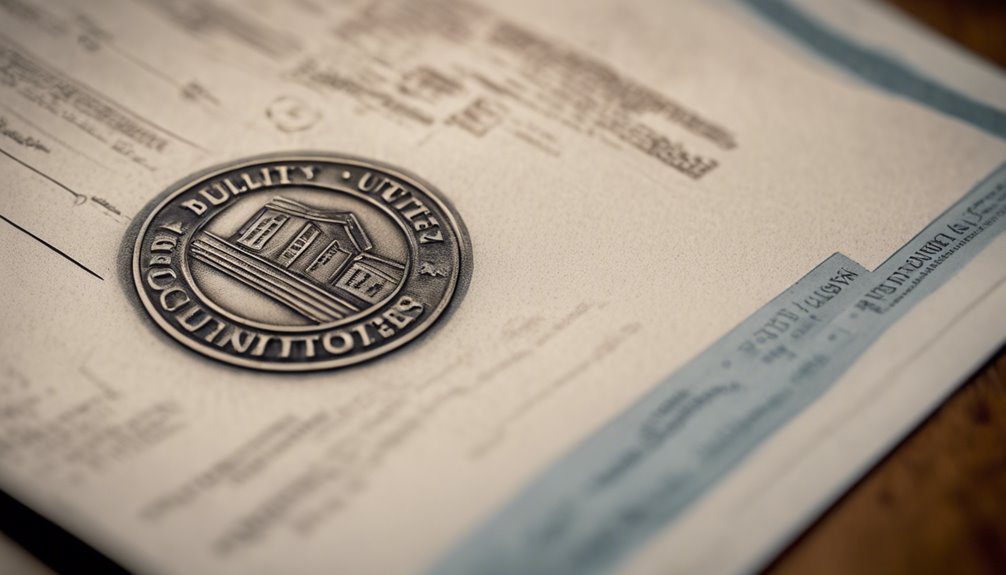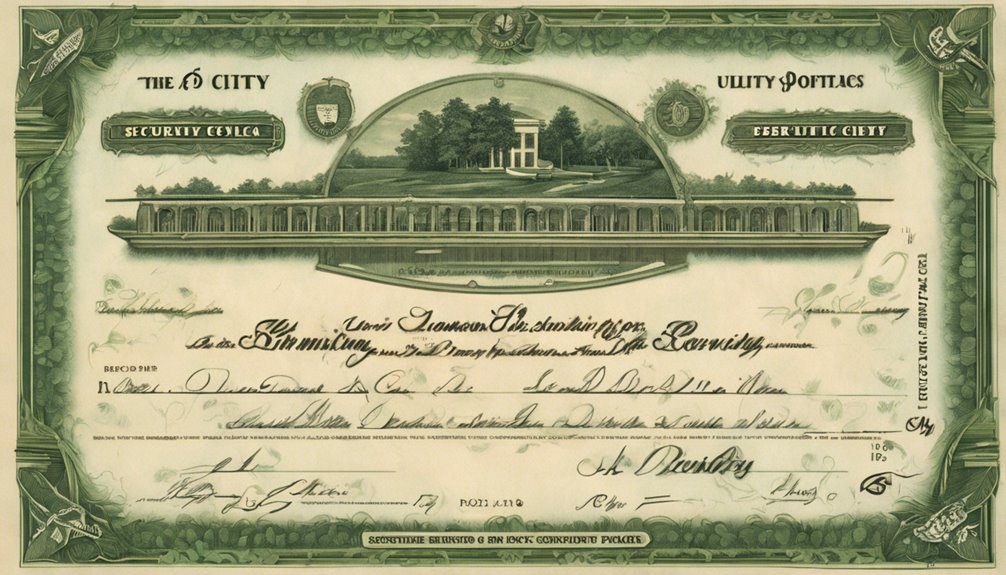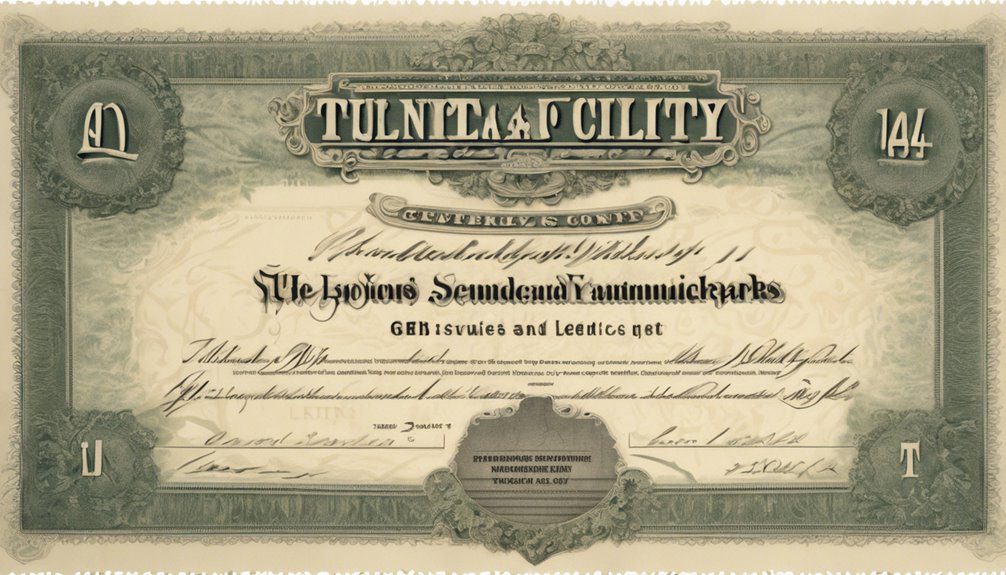If you're considering utility services in Lenoir City, you might want to explore the Utility Deposit Bond option. This alternative allows you to avoid hefty cash deposits while still ensuring protection for the utility provider. Instead of tying up your funds in a lump sum, you pay a manageable premium to a surety company. But what does this mean for your financial planning and the overall utility experience? Understanding the details could significantly impact your decision-making process.
What Is a Utility Deposit Bond?

A utility deposit bond serves as a financial guarantee for utility companies, ensuring that they'll receive payment for services rendered. If you're looking to establish utility services, you might need to provide this bond instead of a traditional cash deposit. Essentially, it acts as a safety net for the utility provider, protecting them against potential non-payment.
When you secure a utility deposit bond, you're working with a surety company that issues the bond on your behalf. This means that if you fail to pay your utility bills, the surety company will cover the outstanding amount, allowing the utility provider to continue offering services without interruption.
However, you'll be responsible for repaying the surety company, which can add an extra layer of financial obligation.
The bond typically covers a specific amount, often reflecting your estimated utility usage. By offering this bond, you demonstrate your commitment to fulfilling your payment responsibilities, which can help you establish or maintain your utility service.
Understanding the role of a utility deposit bond can help you navigate the requirements of utility providers more effectively.
How Utility Deposit Bonds Work
When you secure a utility deposit bond, you're engaging in a process that provides both you and the utility company with financial assurance.
Essentially, this bond acts as a guarantee that you'll fulfill your financial obligations concerning utility services. Instead of paying a traditional cash deposit, you pay a premium for the bond to a surety company.
Once you obtain the bond, the surety company assumes the risk of your utility payments. If you fail to pay your utility bills, the utility company can make a claim against the bond. The surety company will then cover the payment, ensuring the utility provider receives the funds they're owed.
However, you're still responsible for repaying the surety company for any amounts they pay out.
This method allows you to avoid tying up a large sum of cash in a deposit while still providing the utility company with a safety net.
It's important to remember that the bond doesn't eliminate your obligation to pay for services rendered; it simply shifts the risk to the surety company while allowing you to manage your finances more flexibly.
Benefits of Using a Deposit Bond

Using a utility deposit bond can really lighten your financial load. Instead of paying a hefty upfront deposit to secure your utility services, you're only required to purchase a bond. This means you can keep more cash in your pocket for other essential expenses or emergencies.
Another major benefit is the flexibility it offers. With a deposit bond, you won't be tied down by a large sum that's often locked away for months or years. You can use those funds for things that matter right now, like paying bills or investing in essential items.
Moreover, deposit bonds are often easier to obtain. If you have a less-than-perfect credit score, traditional deposits can be a barrier. However, with a bond, you open the door to securing utilities without the stress of a credit check. Additionally, utility companies may require surety bonds for specific businesses to ensure compliance with their regulations.
Differences From Traditional Deposits
Utility deposit bonds and traditional deposits differ significantly in both structure and impact on your finances.
When you opt for a traditional deposit, you typically pay a lump sum upfront, which can strain your budget. This amount is held by the utility company and mightn't earn any interest, tying up your money for the duration of your service.
In contrast, a utility deposit bond requires a smaller premium, so you won't need to allocate a large sum upfront. Instead, you'll pay a fee to secure the bond, freeing up cash for other expenses.
Another key difference is the return of funds. With traditional deposits, you often get your money back after a certain period, provided you've maintained a good payment history.
However, with a deposit bond, you're not actually putting down cash; you're securing coverage through a bond, which remains in place throughout your service. This means you won't see any funds returned to you, but you won't have to worry about the upfront costs either.
Ultimately, choosing a deposit bond can provide immediate financial relief, while traditional deposits can limit your cash flow during your service period. Additionally, utility deposit bonds function similarly to license and permit bonds, serving as a guarantee that protects both consumers and utility providers.
Eligibility Requirements for Bonds

To qualify for a utility deposit bond, you'll need to meet specific eligibility requirements set by the Lenoir City Utilities Board. First, you must be a residential or commercial customer planning to establish utility services. If you've previously had service with the utility board, your payment history is crucial. A good track record with timely payments will significantly enhance your eligibility.
Next, it's essential that you provide the necessary documentation, which may include proof of identity and residence, such as a driver's license or utility bill. You'll also need to demonstrate financial stability, which may involve submitting a credit report or other financial statements.
Additionally, if you've had any previous service interruptions or disconnections due to non-payment, it could impact your eligibility. The board generally looks for a pattern of responsible utility use.
Lastly, make sure you're not currently in any legal disputes with the utility board or other local authorities regarding utility services. Meeting these requirements will help you secure a utility deposit bond and enjoy uninterrupted service from the Lenoir City Utilities Board. Furthermore, understanding the importance of Arkansas Surety Bonds can be beneficial in navigating the bond process effectively.
Application Process for Bonds
The application process for a utility deposit bond with the Lenoir City Utilities Board is straightforward and designed to ensure you meet all necessary criteria.
First, you'll need to gather required documents, such as proof of identity, income verification, and any previous utility history. It's essential to have these documents ready to streamline your application.
Next, complete the application form, which you can obtain online or at the Lenoir City Utilities Board office. Make sure to fill it out accurately, providing all requested information.
Once you've completed the form, submit it along with your gathered documents.
After submission, the board will review your application and may contact you for additional information or clarification. It's a good idea to stay reachable during this time, as prompt responses can help expedite the process.
Cost of Utility Deposit Bonds

When considering a utility deposit bond, it's important to know that costs can vary based on several factors. The primary factors include the amount of the bond, your credit score, and the specific requirements of the utility provider.
Generally, the bond amount reflects the utility's estimated deposit, which can range from a few hundred to several thousand dollars, depending on your usage and history.
Your credit score plays a significant role in determining the premium you'll pay for the bond. If you have a strong credit history, you might qualify for lower premiums, potentially saving you money. On the other hand, if your credit isn't as strong, you may face higher rates.
Additionally, different bonding companies may offer varying prices and terms, so it's wise to shop around. Requesting quotes from multiple providers can help you find the best deal.
Lastly, don't forget to consider any additional fees or costs associated with the bond, as these can impact your overall expenses. By understanding these factors, you can better prepare for the financial commitment involved in securing a utility deposit bond.
Frequently Asked Questions
Navigating the world of utility deposit bonds often leads to a variety of questions. You might wonder what a utility deposit bond is and why it's necessary. Essentially, it's a financial guarantee that ensures you'll pay your utility bills. If you fail to pay, the bond covers the cost, protecting the utility provider.
You may also ask how much a utility deposit bond costs. Costs can vary based on your credit history and the utility provider's requirements. It's common to pay a small percentage of the bond amount upfront.
Another common question is how long the bond lasts. Typically, the bond remains in effect as long as you're a customer. You should contact your utility provider for specific details regarding their policies.
If you're concerned about getting your deposit back, rest assured that once you've established a good payment history, you may be eligible for a refund. Keep in mind, though, that each utility company has its own rules.
Lastly, you might be curious about how to obtain a utility deposit bond. You can usually apply through insurance companies or bonding agencies, which simplify the process for you. Additionally, understanding the state-specific regulations regarding utility bonds can help ensure compliance and avoid potential issues.
Alternatives to Deposit Bonds

If you're looking for alternatives to utility deposit bonds, several options can help you manage your utility costs without the need for a bond.
One effective solution is to establish a payment plan with your utility provider. Many companies offer flexible payment arrangements, allowing you to spread out your payments over time, making it easier to stay on top of your utility bills.
Another option is to consider a letter of credit from your bank. This can serve as a guarantee to the utility company that you have sufficient funds to cover your bills, often without the upfront cost of a deposit bond.
Additionally, you might explore low-income assistance programs that some utilities provide. These programs can help reduce your initial deposit requirements based on your financial situation.
Lastly, if you've got a good credit score, you may qualify for a reduced or waived deposit altogether. Furthermore, understanding local regulations can help you make informed decisions about your utility options and any associated requirements.
Customer Experiences and Testimonials
Customer experiences with the Lenoir City Utilities Board's utility deposit bond process can provide valuable insights into its effectiveness and overall customer satisfaction.
Many customers appreciate the convenience of the bond, noting it allows them to avoid a hefty upfront deposit while still securing utility services. You might find it reassuring that numerous testimonials highlight quick approvals and helpful customer service representatives who guide you through the process.
Some users have shared that they encountered minimal paperwork and found the online application straightforward.
It's common to hear that the bond's flexibility made it easier for families and individuals to manage their budgets without compromising on essential services.
Of course, there are occasional concerns regarding the bond's terms and conditions. A few customers have mentioned wanting clearer information about renewal processes and potential fees.
However, overall feedback is overwhelmingly positive, with many feeling that the utility deposit bond is a practical solution. Additionally, understanding state regulations can further enhance your experience and ensure compliance with local laws.
As you consider your options, these insights may help you evaluate whether the utility deposit bond aligns with your needs and expectations for reliable utility service.
Conclusion
In conclusion, the Lenoir City Utilities Board Utility Deposit Bond presents a smart alternative to traditional cash deposits. By opting for this bond, you can enjoy lower upfront costs and a hassle-free application process while still ensuring your utility services. With its numerous benefits and protections, it's a win-win for both you and the utility provider. If you're looking to ease your financial burden while securing essential services, consider the deposit bond as your go-to solution.


